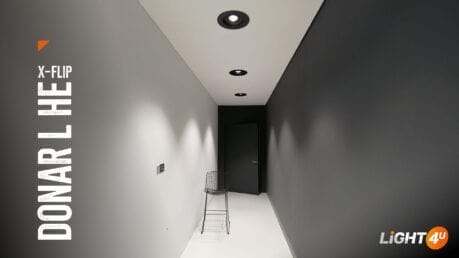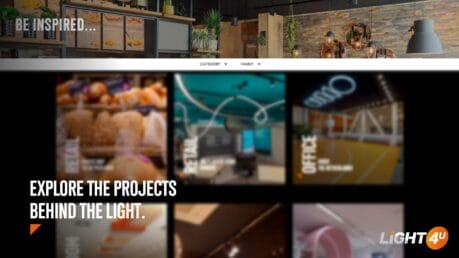Project name: Royal Delft Museum – Unveiling history with radiance.
Realised by: Bedrijfsverlichting.nl in cooperation with Light4U BV
Photography credits: Bianca Wesselius – Way2Style
Client’s location: Delft, Netherlands
The story
Since its founding in 1653, the Royal Delft Museum has stood as a living icon of Dutch craftsmanship – the only remaining factory museum producing genuine Delft Blue ceramics. In this storied location, light needed to do more than illuminate – it had to honour history, elevate artistry, and adapt to changing exhibitions.
Challenges
• Balancing the museum’s rich historic atmosphere with modern lighting performance.
• Highlighting delicate ceramic glazes, reliefs and textures without glare or visual fatigue.
• Ensuring exhibition flexibility so that future displays can be changed without requiring a complete lighting redesign.
• Keeping energy efficiency and museum-friendly maintenance in mind.
Innovative lighting solution
To achieve all this, Light4U specified the Surt track spotlight.
• Adjustable beam angles from 15° to 60° enable fine control of light spread depending on the size and distance of each object.
• Flux adjustment capability allows curators to maintain uniform lux levels across display walls – or, by deliberate design, intensify specific pieces for accent and emphasis.
• High-CRI output ensures the authentic colours of the glazed ceramics.
• Control options include an on-board potentiometer, but also, in case of need, it can be equipped with Casambi, DALI or phase-cut (triac) dimming for remote or smart operation.
• Accessories such as honeycomb filters and barn doors shape light precisely and control glare.
• Track mounting allows easy repositioning as exhibits change.
By selecting Surt and configuring beam and flux carefully, the team ensured each porcelain piece receives exactly the right amount and quality of light – bringing out textures, patterns and depth with museum-level visual clarity.
Outcome & customer feedback
The result is a serene yet rich visitor experience: the ceramics’ iconic blue tones and delicate white glazes appear more vibrant, contours stand out clearly, and the space retains its heritage ambience while gaining flexible lighting for future exhibits. The museum team highlighted how the lighting now supports both historical fidelity and curatorial freedom.
Why this matters
This lighting project shows how precision lighting can transform heritage spaces – not by dominating them, but by quietly enabling them to shine. When lighting supports architecture and art so seamlessly, it becomes invisible while making everything else visible.
Call to action
Looking to elevate your gallery, museum, or exhibition space? Contact our team for lighting solutions that combine heritage respect, technical innovation, and design flexibility.











